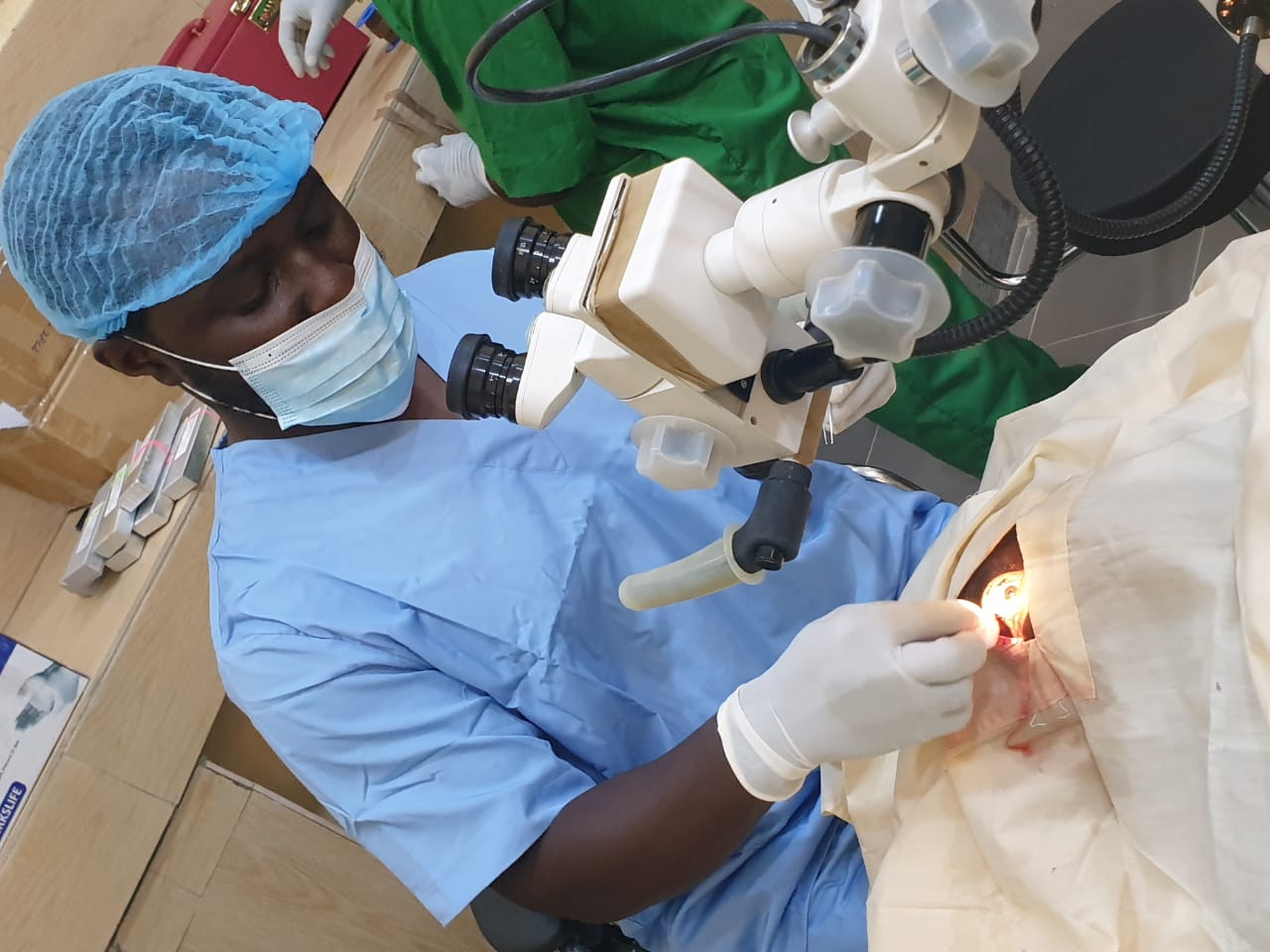Health
World Sight Day: Sightsavers say eye health important to children, as it is for the elderlyà

An international development organization, Sightsavers has emphasize the importance of accessible eye health services for everyone, regardless of age.
Sightsavers in marking this year World Sight Day, a global initiative aimed at raising awareness about eye health and vision care, calls for better access to eye health services for everyone from children to the elderly.

Country Director of Sightsavers Dr Joy Shu’aibu in a Press Statement signed and issued in Jos to Mark the World Sight Day said Contrary to popular belief, vision problems affect not just the elderly, but people of all ages, saying two-thirds of children and adults who require glasses to see clearly do not have access to them.
He added that lack of access also applies to other eye conditions like cataracts, which can be present at birth.
“Everyone, at some point, needs support to maintain good eye health: to see the board at school, to drive and work, and for independence later in life. Yet eye health is a neglected area of healthcare, and people are struggling unnecessarily with avoidable blindness and vision impairment.
“Two thirds of children and adults who require glasses to help them see clearly, do not have access to these glasses. The same can be said of other eye conditions like cataracts, (a condition children can be born with) where a significant proportion of people especially living in rural communities are unable to get the treatment they need.”
“Globally, there are 1.1 billion people who have an untreated or preventable visual impairment. In Nigeria the numbers are similarly shocking, in 2020 there was an estimated 24 million people with vision loss, and of these 1.3 million people are blind or have moderate to severe vision impairment from cataract or refractive error”.
Dr. Shu’aibu disclosed that for this year World Sight Day, Sightsavers is supporting several activities under the Plateau Inclusive Eye Health Programme.
“A comprehensive eye health initiative in Jos and Shendam will include screenings for up to 700 pupils, eye health education for teachers, and the provision of glasses.
“Roadshows and media engagements will raise awareness at state and local levels, with visits to the Ministry of Education and state universal basic education board (SUBEB) health promotion officers will lead community campaigns, advocating to traditional rulers and local institutions.
“Additionally, a medical and surgical outreach is planned for Quanpan in collaboration with the state government and partners.
Dr Shu’aibu added, “These events celebrate the achievements made and raise awareness of the eye health crisis we face globally and in Nigeria.
“We have made great progress to meet the challenges, with governments, donors, decision-makers, NGOs, and other partners collaborating to improve access to quality and affordable eye health services for everyone. But big changes are still needed to make avoidable vision impairment truly avoidable.
He further stressed that across the world, the avoidable vision issues of cataract and uncorrected refractive errors, such as short-sightedness, are the leading causes of blindness and vision impairment respectively.
“Addressing the world’s eye health issues would cost just a sixteenth of the annual global productivity loss due to visual impairment. For example, having the right glasses could help people increase their earnings by a third, in turn boosting the economy. Yet, most people don’t have access to the glasses they need, and children with vision impairment in low- and middle-income countries are up to five times less likely to be in formal education, impacting their future prospects.
“The impact of eye health can be seen in Rabiatu from Zamfara. Rabiatu a vibrant four year old from Zamfara who recently underwent a successful cataract surgery transforming her world from blurry shadows to vivid colours. Beaming with joy after her bandages were taken off, she declared: “mama I can see”.
Dr Joy Shu’aibu concludes: “Many eye health interventions can be relatively small or straightforward, yet the impact can be life changing.”























